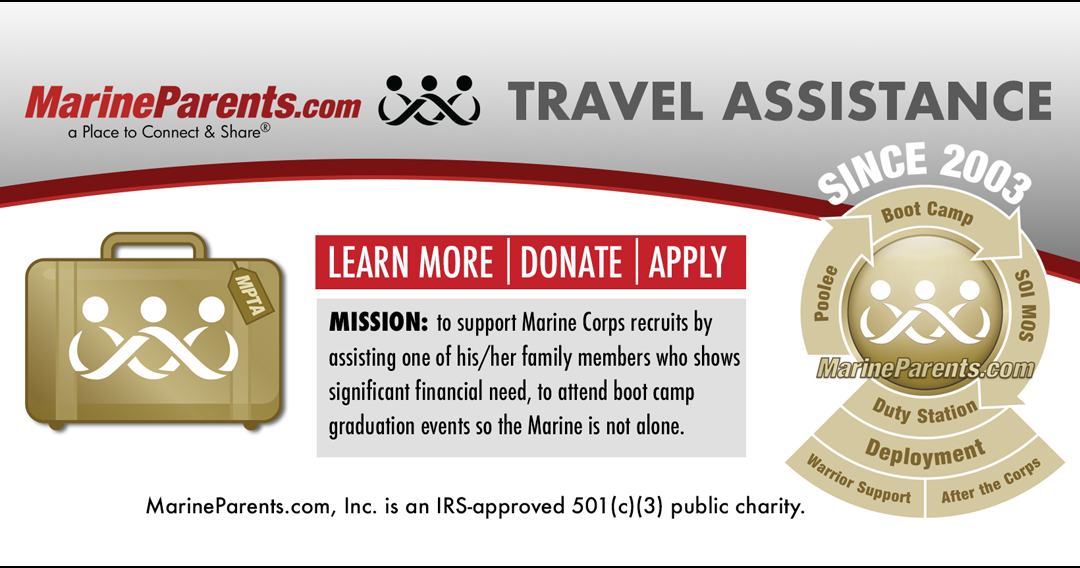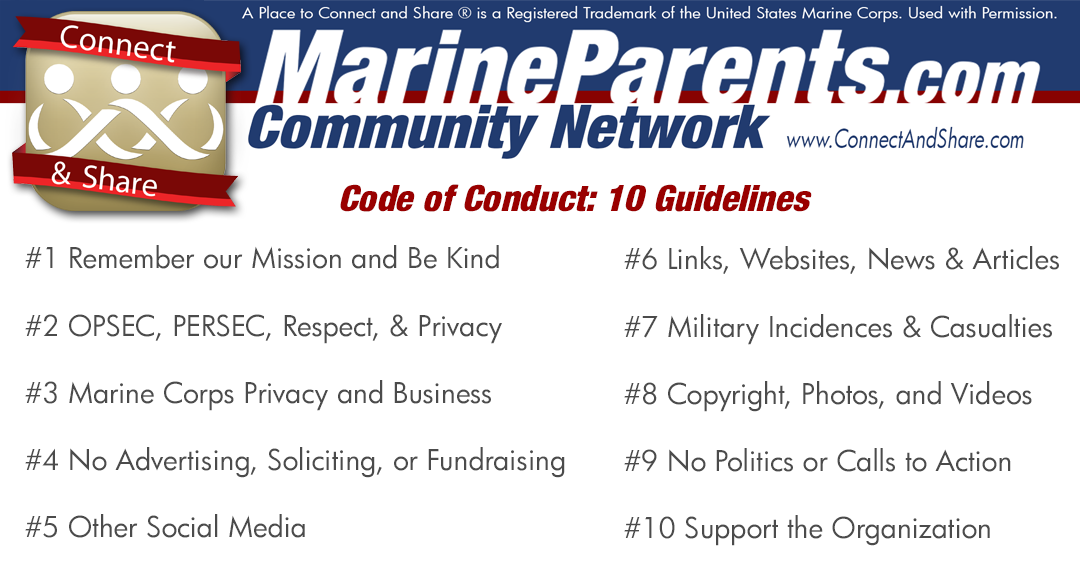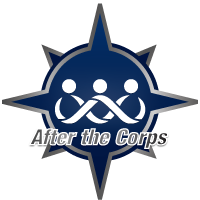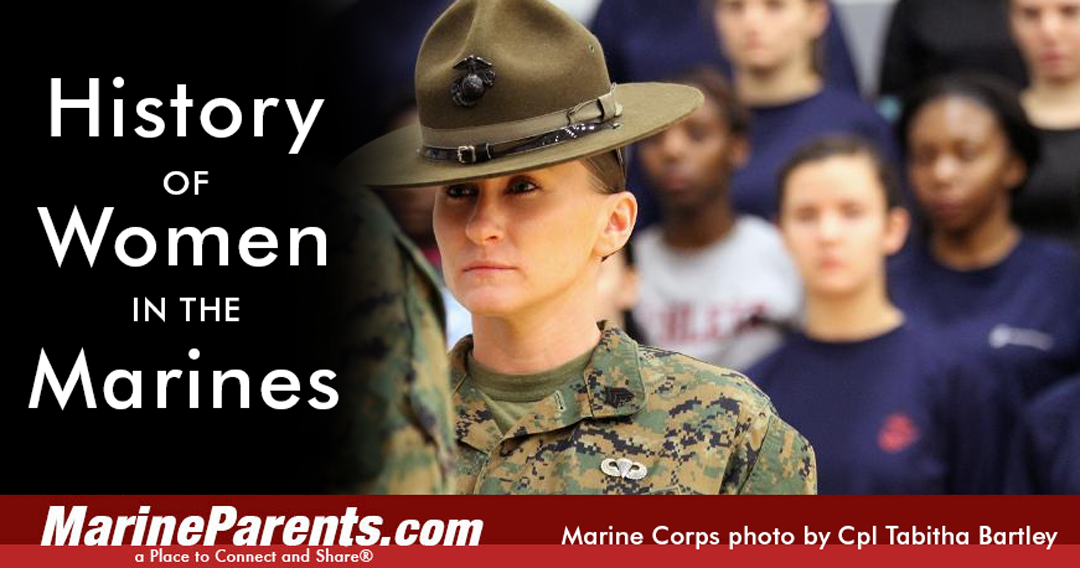
From Health and Wealth to Religious Ministries
Recruits in Marine Corps boot camp receive the best training possible and are very well cared for throughout the course of their thirteen weeks on the Recruit Depot.
From injury prevention and dental treatment to recruit pay and the Thrift Savings Plan, every base is covered, including Religious Ministries.
Injury Prevention
The Marine Corps' Sports Medicine Injury Prevention program is in place during recruit training to ensure this rigorous training is completed with as few musculoskeletal injuries as possible.
Specialist in the fields of physical conditioning and injury prevention are part of the recruit training staff. These experts coupled with the Navy's Medical Personnel on Parris Island, provide a force so that the physical training can remain demanding with minimal injury risk.
Note: Recruits also receive a dental exam and, when needed, some dental treatment during recruit training. See below for additional commentary.
Thrift Savings Plan
Recruits receive a class on the Thrift Savings Plan, or TSP. The TSP is a Federal Government-sponsored retirement savings and investment plan that the U.S. Congress established in the Federal Employees' Retirement System Act of 1986.
The purpose of the TSP is to provide retirement income. TSP is a defined contribution plan, and the amount of retirement income that you receive from your TSP account will depend on how much you have contributed to your account during your working years and the earnings on those contributions. The TSP offers the same type of savings and tax benefits that many private corporations offer their employees under so - called "401(k)" plans.
Religious Ministries
An Integral part of making, and being a Marine, is individual spiritual readiness.
Recruits are provided the opportunity, if they desire, to worship within their individual faith or beliefs. They also learn about religious tolerance, ethical awareness, and how spiritual readiness is a part of their personal understanding and ownership of core Values.
The functions of the Recruit Training Ministry are:
- Conducting worship services.
- Pastoral Counseling.
- Stress Management Counseling.
- Assisting in the teaching of core values classes.
- Delivering messages from the Red Cross.
Above information found on the Parris Island web site, October, 2009.
To learn more, visit the Parris Island web site by using the link below:
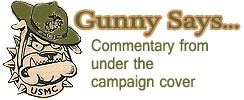
As mentioned above, recruits receive a dental exam and, when needed, some dental treatment during recruit training. In some cases that dental treatment includes having wisdom teeth pulled. Upon hearing this, one recruit mom was shocked and expressed her feeling that this practice is barbaric. See the response "from under the campaign cover" below:
If your son is lucky, they'll pull his wisdom teeth. Every recruit is evaluated on a case by case basis. Pulling them after they hit the operating forces is too late; he should be learning how to kill the enemy and not taking rest days for dental surgery. Recruits get plenty of medication and time off after getting their wisdom teeth pulled. Their "agony" is kept to a minimum in recruit training, since learning to deal with hardship, pain, and loss is something they'll never experience in combat. Don't worry though... if he doesn't get his wisdom teeth pulled I'll make sure the Drill Instructors give him extra attention when other recruits do.
My point is this: Relax. Your son's wisdom teeth (you know, the teeth that humans developed as an answer to our ancestor's early diet of coarse, rough food, but no longer have an evolutionary need for) are in the capable hands of U.S. Navy medicine. The most barbaric thing the Navy practices is a 12 cup coffee maker in a 15 man shop.
He'll be fine. It's time to take off the training wheels.
—United States Marine and Series Gunnery Sergeant, 2009
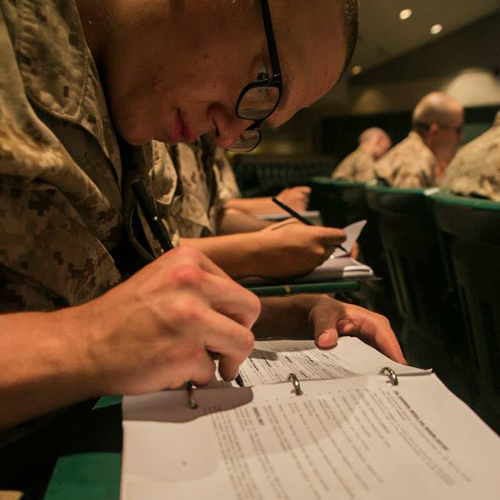
Recruit Lucas Cline, Platoon 1082, Charlie Company, 1st Recruit Training Battalion, studies his notes August 25, 2014, on Parris Island, S.C. Recruits receive 58 formal classes covering topics from administrative issues to combat care and Marine Corps history.
—USMC photo by Corporal Jennifer Schubert






